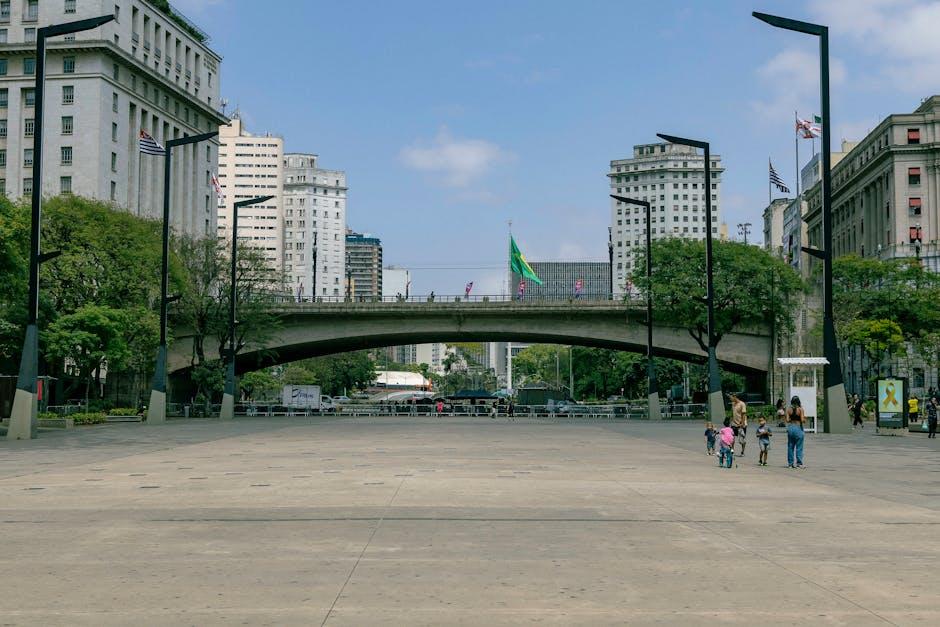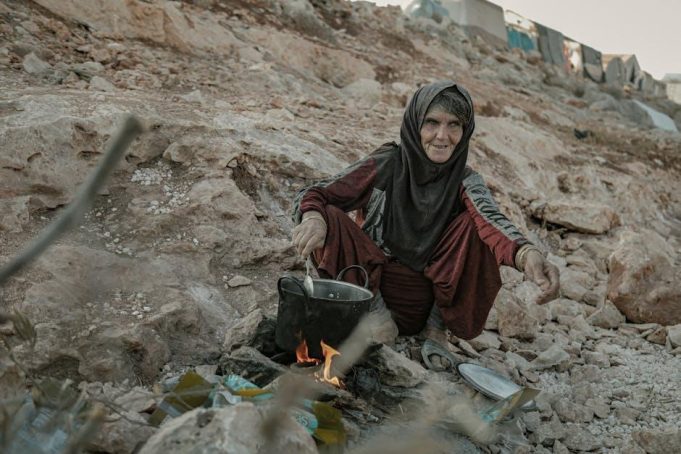In a world where the concept of a family vacation conjures images of laughter-filled road trips, sun-soaked beaches, and the joy of shared experiences, there exists a stark contrast that often goes unnoticed. For millions living in extreme poverty, the idea of a family getaway is not just a distant dream—it is an impossible reality. This article delves into the complex tapestry of extreme poverty, exploring how the universal desire for leisure and connection collides with the harsh constraints of economic disparity. By examining the “Family Vacation Dilemma,” we aim to shed light on the profound impact that poverty has on the ability to experience even the simplest joys of life, and how this disparity speaks volumes about the broader socio-economic challenges faced by families across the globe.
Navigating Financial Constraints on Family Getaways
When financial limitations loom large, planning a family vacation can feel like an insurmountable challenge. However, with a bit of creativity and strategic planning, it’s possible to orchestrate memorable getaways without breaking the bank. Consider these strategies:
- Stay Local: Explore the hidden gems within your own region. Day trips to nearby parks, museums, or cultural festivals can offer enriching experiences without the costs associated with long-distance travel.
- Embrace Off-Peak Travel: By vacationing during off-peak seasons, families can benefit from lower accommodation and travel rates, allowing for more flexibility in budgeting.
- Leverage Community Resources: Many communities offer free or low-cost activities for families, such as outdoor concerts, library programs, and community events. These can provide entertainment and learning opportunities for all ages.
Incorporating these approaches not only alleviates the financial strain but also fosters a deeper connection to the local environment and culture. The essence of a family vacation lies in the shared experiences and memories created, which do not necessarily require extravagant spending.
Understanding the Emotional Impact of Poverty on Vacation Planning
When families living in extreme poverty consider the prospect of a vacation, it often comes with a wave of complex emotions. On one hand, there is the yearning for a break from the relentless pressures of daily survival. On the other, the stark reality of financial constraints can make the idea of leisure seem like an unattainable dream. This emotional tug-of-war can lead to feelings of guilt, inadequacy, and frustration, as parents may feel they are unable to provide their children with experiences that are often seen as a staple of a ‘normal’ childhood.
- Guilt: Parents may struggle with the guilt of wanting to spend money on a vacation when there are pressing needs at home.
- Inadequacy: The societal pressure to offer enriching experiences can make those in poverty feel inadequate or like they are failing their families.
- Frustration: The inability to plan a getaway can lead to frustration, as it highlights the constraints of their situation.
These emotions can be compounded by societal narratives that associate vacations with success and happiness. For families grappling with poverty, this can lead to a sense of alienation from peers who can afford such luxuries, intensifying feelings of exclusion and sadness. Understanding these emotional layers is crucial for addressing the broader implications of poverty and its impact on family dynamics.

Creative Solutions for Affordable Family Travel Experiences
Finding ways to travel with family on a tight budget can be challenging, yet it opens up a world of creativity and resourcefulness. When financial constraints are high, it’s essential to think outside the box and discover opportunities that might otherwise be overlooked. One such approach is to explore local destinations that are often overshadowed by more popular tourist spots. These places not only offer a unique experience but also tend to be more affordable. Consider a visit to community-driven projects, local art festivals, or even volunteering opportunities that provide both enriching experiences and a chance to give back.
Another creative strategy involves making use of technology and the sharing economy. Home exchanges, house-sitting opportunities, or couchsurfing can significantly cut down accommodation costs while offering a more authentic experience of the place. For transportation, apps that offer ride-sharing or carpooling services can be a cost-effective alternative. Additionally, planning meals creatively can also help keep expenses low. Opt for local markets over restaurants, and involve the family in cooking meals together. These approaches not only make travel more affordable but also turn it into an educational and bonding experience for the entire family.

Building Community Support for Low-Income Family Holidays
For many low-income families, the concept of a holiday can seem like a distant dream. Economic constraints often make it difficult for these families to afford even the most basic vacation experiences. As communities, we have the power to change this narrative by coming together to create inclusive opportunities that ensure everyone can enjoy a well-deserved break. This calls for innovative approaches and the collaboration of local businesses, organizations, and individuals who are willing to contribute to a common cause.
- Community Fundraisers: Organize local events where the proceeds go towards sponsoring family vacations. This could be a community bake sale, a charity run, or even an auction.
- Partnerships with Travel Agencies: Encourage travel agencies to offer discounted packages or sponsorships for low-income families.
- Volunteer Programs: Engage volunteers to assist with planning and executing community trips that are affordable and accessible.
- Local Government Support: Advocate for local government initiatives that provide financial support or subsidies for family vacations.
By implementing these strategies, we can foster a sense of unity and ensure that every family, regardless of their financial situation, has the opportunity to create cherished memories together. In doing so, we not only enrich the lives of these families but also strengthen the fabric of our communities.






























